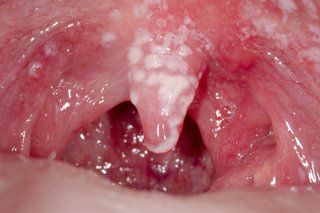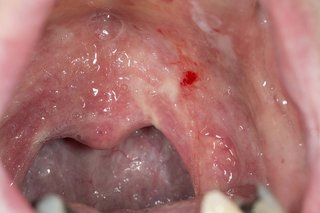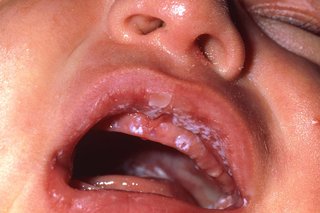If you have concerns regarding your own or a family members memory please contact the practice to book an appointment 01606 544241
ADHD/ASD Assessment/Treatment
Patient advice Right to Choose Service Referral and Medications
You have asked your GP to refer you for an ADHD or ASD assessment and/or treatment service provider under your ‘Right to Choose’ (RTC). Your GP will write the referral and provide it to you or send it directly to your nominated provider at your request. If you have any queries about the appointment, please contact the provider directly.
Right to Choose Providers are usually private provider companies that hold an NHS contract with one or more NHS commissioners. When choosing a Right to Choose Provider it is important to consider the following points
Choice
Your GP cannot choose for you. You need to research the options and make the choice yourself then contact your GP to inform them of your chosen provider and they will advise you on how to proceed. One point of reference for RTC providers is ADHD UK: https://adhduk.co.uk/
Referral
The number of RTC providers is large and each provider may have its own referral process. It is not practical for your GP to complete a different referral process for every patient who chooses a different provider. Most providers need a core set of information so your GP may ask you to complete a questionnaire, and an ADHD self-assessment score as part of a standardised referral. If the provider needs additional information, they can request it from the practice or by asking you directly.
Diagnosis and follow-up
Most RTC providers exclusively perform remote and/or online assessments and the local NHS ADHD services may not have sufficient confidence in these diagnostic processes to accept their diagnoses. They may not take over your care unless they have completed their own assessment and diagnostic process. Therefore, your diagnosis may not be universally accepted, and you may find you cannot seek treatment and follow-up directly with local services following an RTC diagnosis.
Prescriptions
If you are diagnosed with ADHD, the RTC provider may suggest medications for you. The medications used for ADHD are restricted so that GPs cannot routinely prescribe them. The specialist service is responsible for prescribing them. They can request that your GP prescribes them under an agreement called a ‘shared care agreement’ but it is unlikely that your GP will be able to enter into this agreement for reasons of patient safety and resources. It is not safe for GPs to try to keep up with so many providers, each with their own contact details and processes when prescribing such safety critical medications.
Due to the nature of RTC providers, if the business stops trading for any reason or if they have their NHS contract removed then their care, and any prescriptions would more than likely cease which is another reason your GP may not feel it is safe, or good practice to enter into an agreement to prescribe for them.
When you are choosing your RTC provider you may find it useful to use this information to support your decision making and also to share with your chosen provider so that they are aware that their duty in prescribing, in particular, is unlikely to be taken over by your GP.
Social Prescribing
What is Social Prescribing?
Social Prescribing empowers people to take control of their health and wellbeing through referral to ‘link workers’ who give time, focus on ‘what matters to me’ and take a holistic approach to an individual’s health and wellbeing, connecting people to community groups and services for practical and emotional support.
Social Prescriber referrals are for patients with issues that are impacting on health and wellbeing. They are not clinical support but can provide support and information on different areas.
Areas of support:
- Finances
- Housing
- Social Isolation
- Employment
- Carer Support
- Bereavement
Non-Urgent Advice
Patients can be referred via their practice or patients can self-refer by emailing cmicb-cheshire.northwichsp@nhs.net or asking a member of the surgery team to refer on patients behalf.
What happens if I’m asked to speak to a Social Prescriber?
One of the team, Donna, Lauren, Wendy or Karen will contact you usually by telephone initially and a convenient appointment will be arranged. These can be via telephone or in person. They will ask you a bit about yourself and explain the support they can offer you.
Care Co-ordinator
Your Care Co-ordinators at Oakwood are Kellie and Alison. Care co-ordinators within GP practices, act as a central point of support for patients to review needs and coordinate services allowing them to access what they need, when they need it.
Who we can help
Examples of patients who may want to access the service are:
- Recently discharged patients with ongoing care needs
- Patient with a new diagnosis who may need support from local or national groups
- Patients with long term or complex care needs
- Patients who frequently access the practice and/or other care environments
Non-urgent advice:How do I get a referral to these services?
When you contact the practice your request will usually be triaged by the GP or healthcare professional If they feel you would benefit from the input of one of the team they will ask for you to be referred to our care coordinator.
Sexual Health Clinic
Welcome to Sexual Health Cheshire West and Chester
We provide free and confidential sexual health services in Cheshire West and Chester including Winsford, Blacon and Ellesmere Port. Our services include providing free information and advice on all types of contraception and STI testing and treatment. Our service is confidential, non-judgemental and for people of all ages, genders and orientations.
Everyone is welcome and you don’t need to see a GP first. You can book an appointment online 24/7 or speak to us on 0300 247 0020. Our telephone line is open Monday – Thursday 9am- 5pm, Friday 9am-3:30pm & Saturday 9am-12:30pm
You may have heard about Mpox in the news recently. But what is it, what are the symptoms and how can you access help and information?
Sexual Health Services available in Chester West and Chester
- Sexual Health Counselling and advice
- Contraception (all types)
- Coil and implant fitting and removal
- Emergency contraception
- Screening and treatment for sexually transmitted infections (STIs), including HIV
- Postal testing
- Express testing
- Pregnancy testing
- Referrals for termination of pregnancy
- Cervical screening
- PrEP- Pre-exposure prophylaxis
- PEPSE
- Vasectomy Services
- Hepatitis B vaccinations
- HPV vaccinations (for men who have sex with men)
Book an appointment online
Call 0300 247 0020
Sexual Health Clinics in Chester, Winsford, Ellesmere Port, Blacon and Northwich
Fountains Health Centre Sexual Health clinic
Fountains Health, Delamere Street, Chester, CH1 4DS
Parking on site £1.50 for 2 hours following validation within the clinic.
Dene Drive Primary Care Centre, Winsford, CW7 1AT
Parking on site free of charge.
Ellesmere Port, Stanney Lane Clinic
Stanney Lane, Ellesmere Port, CH65 9AE
Parking available within the Whitby car park, free of charge.
Carlisle Rd, Blacon, Chester, CH1 5DB
Parking free of charge.
Watling St, Northwich CW9 5EX
Parking on site, free of charge.
(next to Neston Surgery)
Mellock Lane
CH64 9RN
Parking on site, free of charge.
Call 0300 247 0020Monday – Thursday 9am- 5pm, Friday 9am-3:30pm & Saturday 9am-12:30pm
Minor Ailments Bacterial Conjunctivitis Children
Inclusions
Children Aged between 3 months and 2 years
Red Irritated and sticky Eye
Exclusion
Child under 3 and over 2
Facial Swelling
Recent course of treatment
Headache, eye pain or had eye surgery
Minor Ailments Oral Thrush in Babies
Oral thrush (mouth thrush)
Oral thrush is usually harmless. It’s common in babies and older people with dentures. It can be easily treated with medicines bought from a pharmacy.
Check if it’s oral thrush
Adults


Other symptoms in adults are:
- cracks at the corners of the mouth
- not tasting things properly
- an unpleasant taste in the mouth
- pain inside the mouth (for example, a sore tongue or sore gums)
- difficulty eating and drinking
Oral thrush in adults is not contagious.
Babies


Babies with oral thrush may not want to feed.
Babies can pass oral thrush on through breastfeeding. This can cause nipple thrush in mothers.
If you’re not sure it’s oral thrush
Look at other causes of a white or sore tongue.
A pharmacist can help with oral thrush
Oral thrush can be easily treated with a mouth gel bought from a pharmacy. The gel is suitable for adults, children and babies over the age of 4 months.
Ask your pharmacist for advice. Always follow the instructions on the medicine packet.
If you leave oral thrush untreated, the infection can spread to other parts of the body.
Non-urgent advice:See a GP if:
- your baby is under 4 months and has signs of oral thrush
- you have oral thrush and do not see any improvement after 1 week of treatment with a mouth gel
- you have difficulty or pain when swallowing
How you can prevent oral thrush
Oral thrush is an infection caused by a fungus called Candida. Some things can make the fungus grow more than usual.
You might get thrush if you’re:
- taking antibiotics over a long time
- using asthma inhalers
- having cancer treatment like chemotherapy
There are some things you can do to help prevent oral thrush.
Do
- take care of your teeth: brush twice a day, clean your dentures, and go for regular check-ups even if you have dentures
- brush your gums and tongue with a soft toothbrush if you do not have any teeth
- rinse your mouth after eating or taking medicine
- go to regular check-ups if you have a long-term condition like diabetes
- sterilise dummies regularly
- sterilise bottles after each use
Don’t
- do not wear dentures at night
- do not keep wearing dentures if they do not fit properly – see your dentist
- do not smoke
Proxy Access – Access for someone else
If you would like to request access to someone else’s medical records to book appointments, order medication, or view their health records, then they will need to complete a Proxy Access to Health Records if they are over the age of 11.
The Proxy form needs to be signed by the patient giving access. In some cases the Practice may need further information or may need to contact the patient directly to discuss this.
Please see the toolkits for more information on proxy access and the risks and benefits:
GP online services toolkit: Applications for proxy access
Please be aware that you will need to have online access and will have to have your own e-mail address.
If you are unsure about this please contact us to discuss.
Minor Ailments UTI’s
(UTIs) Urinary tract infections (UTIs) affect your urinary tract, including your bladder (cystitis), urethra (urethritis) or kidneys (kidney infection). UTIs may be treated with antibiotics, but they’re not always needed.
If you have any of the following you can be referred under the minor ailments scheme to a local pharmacy who can prescribe you antibiotics.
Check if it’s a urinary tract infection (UTI)
Symptoms of a urinary tract infection (UTI) may include:
- pain or a burning sensation when peeing (dysuria)
- needing to pee more often than usual
- needing to pee more often than usual during the night (nocturia)
- needing to pee suddenly or more urgently than usual
- pee that looks cloudy or change in odour.
- Exclusions
- Under 18’s
- Over 65’s
- Pregnant or Breast Feeding
- Fever
- Liver/Kidney Impairment
- Had previous treatment in last 3 months
Women’s Health
Contraception: Pill Checks, Depo Injections & Coil / Implant fittings
Menopause discussions and medications
Non-urgent advice: Contraception – Appointments
Patients who want to start or change their contraception need a discussion with a GP.
Non-urgent advice: Contraception Pill reviews
Patients who are on the contraceptive pill need a review with the Practice Nurse at least annually, and when starting on a new medication this could be sooner.
Please ensure you book these with enough time to avoid running out of medication.
Non-urgent advice: Contraceptive Injections (depo)
Patients who have the contraceptive injection need to book an appointment with the Practice Nurse. Please ensure these are booked in advance as they are time-limited and need to be done within a 5 day window. Nurse appointments can be booked up to 3 weeks in advance.
Non-urgent advice: Contraceptive Coil and Implant fittings
If you would like to consider a contraceptive coil please contact the Practice to book a discussion appointment with Dr Strefford. They will discuss the options with you and if appropriate, book you into one of their coil clinics.
If patients are coming up to the date when the contraceptive coil needs changing then the reception team can send a note to the GPs to ask to book in to the clinics; the GPs will then contact you directly with an appointment time.
Please note, if you are considering changing your contraception when you are coming up to change your coil you will need an appointment to discuss the options with the GP.
Coil removals with no need for further contraception can be done by the Practice Nurse; please ensure you state this when booking or your appointment may be cancelled.
Non-urgent advice: Contraceptive Implant Fittings & Removals
If you would like to consider a contraceptive implant please contact the Practice to book a discussion with Dr Harding. Dr Harding will discuss the options with you and if appropriate, book you into one of her clinic slots or a clinic slot with the Practice Nurse, Roisin.
If patients are coming up to the date when the contraceptive implant needs changing then the reception team can send a note to the Dr Harding to ask to book in to the clinics; Dr Harding will then contact you directly with an appointment time.
Please note, if you are considering changing your contraception when you are coming up to changing your implant you will need an appointment to discuss the options with the GP.
Non-urgent advice: Menopause – discussion
If you would like to discuss any symptoms or issues associated with menopause please complete the online triage.
There are local services available to support you (see below) and it is an area that is in development locally between Practices.
https://www.menopausematters.co.uk/index.php
https://www.livewell.cheshirewestandchester.gov.uk/Services/3703/Manage-My-Menopause
Non-urgent advice: Menopause – Medication and Reviews
If you are started on medication by the GP to manage menopause symptoms and experience side effects or issues you can discuss your medication with the Practice Pharmacist.
You will need a review of your medication a month after starting the medication and then every 6 months.
The Practice has a text message survey/questionnaire that you will automatically be sent to allow the GP to consider any next steps – please do look out for this and contact us if you have not received it.
Please be aware that we are seeing shortages of HRT nationally and local chemists may struggle to get hold of prescribed medications. If this happens to you, please ask the pharmacy what they are able to get hold of, as it can change between pharmacies, and let us know. This avoids the GP issuing another prescription for something out of stock and stops you having to make multiple requests or trips.